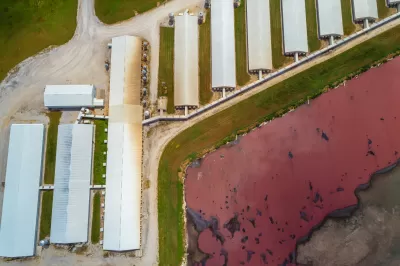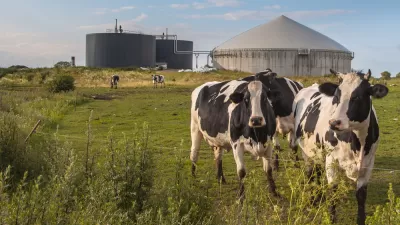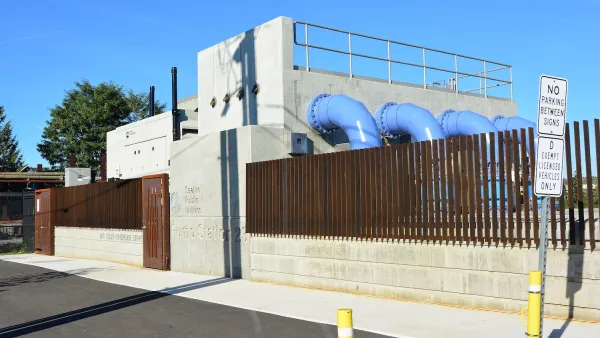A recent court decision has granted Michigan regulators full authority to hold animal agriculture accountable for manure runoff into waterways.

A recent Michigan Supreme Court ruling has granted the state’s Department of Environment, Great Lakes, and Energy full authority to require industrial animal agriculture to take stronger action to address manure runoff into waterways, according to an article in Great Lakes Now. The decision could have major implications for water quality in the state, which has close to 300 concentrated feeding operations, or CAFOs. Each year, these CAFOs produce most of the 4 billion gallons of untreated urine and feces generated by cows, hogs, chickens and turkeys across the state, reports Keith Schneider.
Discharge from CAFOs, which contains toxic levels of nitrates, phosphorous, and E.coli bacteria, leach into surface and groundwater across Michigan and contribute to the phosphorus pollution that causes toxic algal bloom in Lake Erie. Until now, the agricultural industry, including the Michigan Farm Bureau, has pushed back against stronger regulations, which they say will make it harder for farmers to do business in the state. EGLE has not yet made decisions on next steps, but Great Lakes Now reports it can now take a range of actions. For example, it might require CAFOs to treat manure in wastewater facilities before it’s spread on fields or install sensing and monitoring networks to detect leaks in manure storage takes and lagoons. “And the agency could also require animal agriculture to meet state limits for phosphorus, bacteria, and other pollutants in state waters’ and could limit the number of animals housed in a CAFO,” Schneider writes.
Regardless of next steps, it’s a big win for environmental advocates.
FULL STORY: U.S. Movement to Limit CAFO Pollution Emboldened by Michigan Court Ruling

Planetizen Federal Action Tracker
A weekly monitor of how Trump’s orders and actions are impacting planners and planning in America.

Restaurant Patios Were a Pandemic Win — Why Were They so Hard to Keep?
Social distancing requirements and changes in travel patterns prompted cities to pilot new uses for street and sidewalk space. Then it got complicated.

Map: Where Senate Republicans Want to Sell Your Public Lands
For public land advocates, the Senate Republicans’ proposal to sell millions of acres of public land in the West is “the biggest fight of their careers.”

Maui's Vacation Rental Debate Turns Ugly
Verbal attacks, misinformation campaigns and fistfights plague a high-stakes debate to convert thousands of vacation rentals into long-term housing.

San Francisco Suspends Traffic Calming Amidst Record Deaths
Citing “a challenging fiscal landscape,” the city will cease the program on the heels of 42 traffic deaths, including 24 pedestrians.

California Homeless Arrests, Citations Spike After Ruling
An investigation reveals that anti-homeless actions increased up to 500% after Grants Pass v. Johnson — even in cities claiming no policy change.
Urban Design for Planners 1: Software Tools
This six-course series explores essential urban design concepts using open source software and equips planners with the tools they need to participate fully in the urban design process.
Planning for Universal Design
Learn the tools for implementing Universal Design in planning regulations.
Heyer Gruel & Associates PA
JM Goldson LLC
Custer County Colorado
City of Camden Redevelopment Agency
City of Astoria
Transportation Research & Education Center (TREC) at Portland State University
Camden Redevelopment Agency
City of Claremont
Municipality of Princeton (NJ)





























